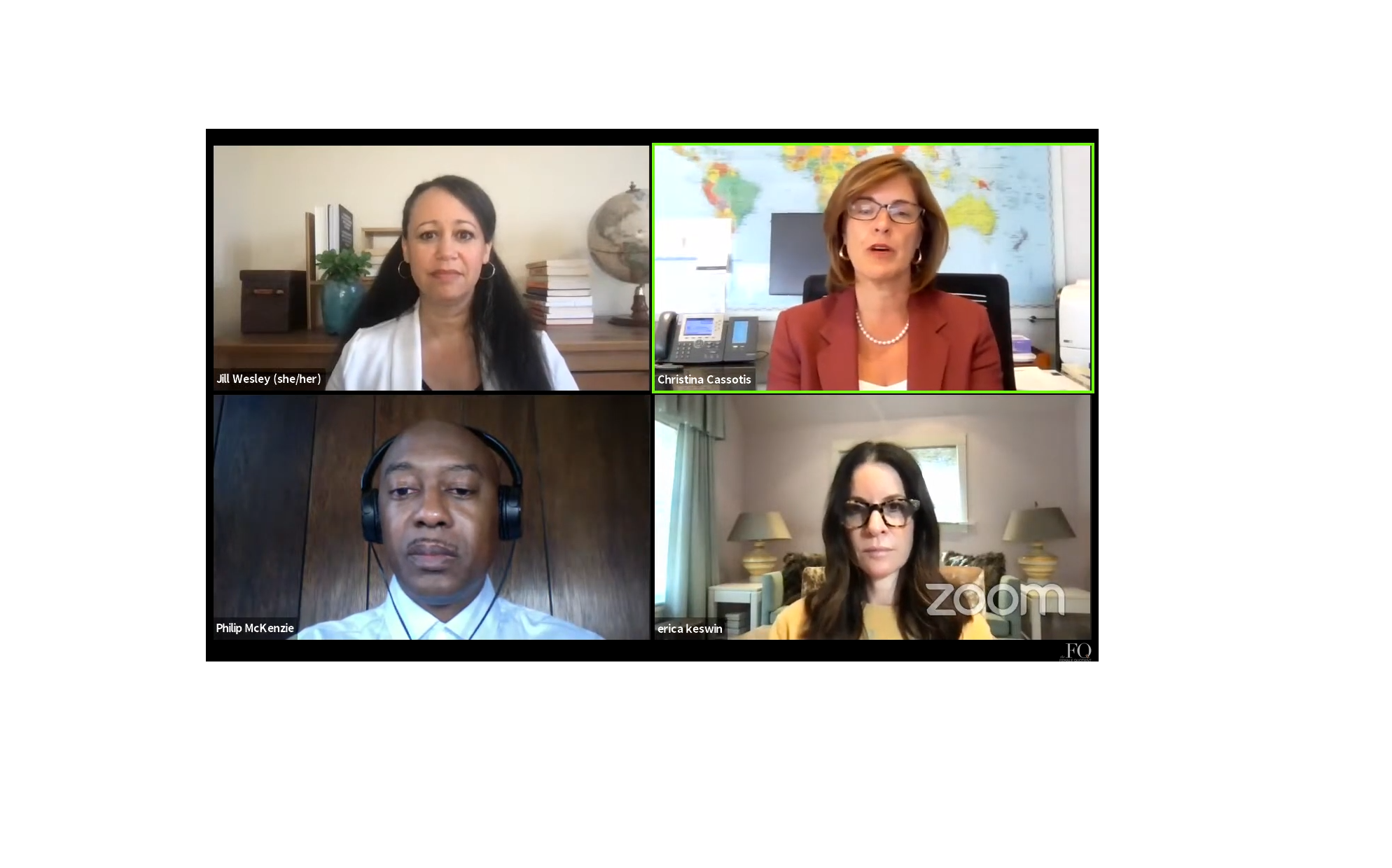The FQ at Cannes 2021: Leadership in the Post-Pandemic World

As businesses swerve from an uncertain pandemic environment to a new post-pandemic reality, what can business leaders do to successfully steer their workplaces through the upcoming twists or turns that lie ahead?
Several strategies for reaching that goal came from participating panelists in one of the virtual Cannes 2021 panels Tuesday presented by The Female Quotient. (MediaVillage this week is live streaming all The FQ's Cannes panels beginning each day at 9 a.m.)
Philip McKenzie, executive director of AdvancingDiversity.org, was on the panel, along with Christina Cassotis, chief executive of Allegheny County Airport Authority (operators of Pittsburgh International Airport), and Erica Keswin, best-selling author and consultant, whose nonfiction overviews of contemporary business practices include Bring Your Human to Work.
Female Quotient partnerships director Jill Wesley moderated the session.
Whatever operational strategies are implemented post-pandemic, they must "break from the old ways and go into new ways," McKenzie declared. Those new ways include leadership built on a foundation of trust among employees, listening to and acting on their suggestions for improvement, and demonstrating compassion for how they are dealing with continued uncertainty.
"Shift the values offered into matters of trust," McKenzie continued. "Are we building institutions that deeply care about people internally and externally? There was inequality with the pandemic impacting women and people of color. The more we can open up to show the impact of what happens, the better. People are being more accountable than ever before."
Trust, listening and compassion must be key elements of generating a strong workplace environment going forward, Cassotis added. Company management must bring those elements to the table over and over again -- starting with management of their own lives at and away from the office. "It's everything," she said. "It's the culture. If you're not living your values at the top, what's the performance? How are you taking care of the community? The only way (employees) can trust each other is that the values start at the tippy, tippy top."
According to Keswin, another key strategy is the development of repeatable practices, or what she calls rituals. "Transforming everyday routines can give us order out of chaos," she asserted. "It's a tool that's so highly accessible. They don't have to cost anybody anything. You just have to be intentional."
One way to have rituals work is through frequent communication among all levels of management with employees -- communications that emphasize safety and empowerment. The more transparent the communication becomes, and the more willing top company management is to be frank about what's not working or how management failed to resolve issues, the more engaged employees will be in collaborating with management to flourish amid uncertainty, Keswin explained.
"People get to see their leaders as people who share their own struggles," she added.
Deploying new technology can be a positive force to weather uncertain tides to a point, McKenzie noted. When technology gets used too often, efficiency and effectiveness plunge. "We can't allow technology to make us less effective than what we need to be," he warned.
Organizations must take what they learned from the pandemic and keep that front of mind, Cassotis said. In her experience, giving employees more problem-solving latitude and an ongoing communications pipeline to management is crucial.
"In a crisis, your culture will be exposed. It's moral turpentine," Cassotis warned. "How will you show up? What we do matters. Our people are assets on the balance sheet. That's how we should look at the world."
"Be in the human capital space," added Keswin. "Play in that space. Be real and build trust. That impacts the bottom line."
Overall, employers must be authentic about how uncertain these times are and how their employees can work in and through these new challenges, McKenzie concluded. To begin, match a diverse workforce with a diverse group of sustainable strategies. "Organizations have to dig deep in a way they haven't done before," he advised. "We have to move away from the Wall Street quarter-by-quarter (results) mentality. The pandemic stripped many of the old stories we told ourselves. Let's shift resources and pay people what they are worth. Institutions must deeply care about all people. We have an opportunity to build things better."
Watch the entire Equality Lounge® @ Cannes Lions On-Demand.
Click the social buttons to share this story with colleagues and friends.
The opinions expressed here are the author's views and do not necessarily represent the views of MediaVillage.com/MyersBizNet.


